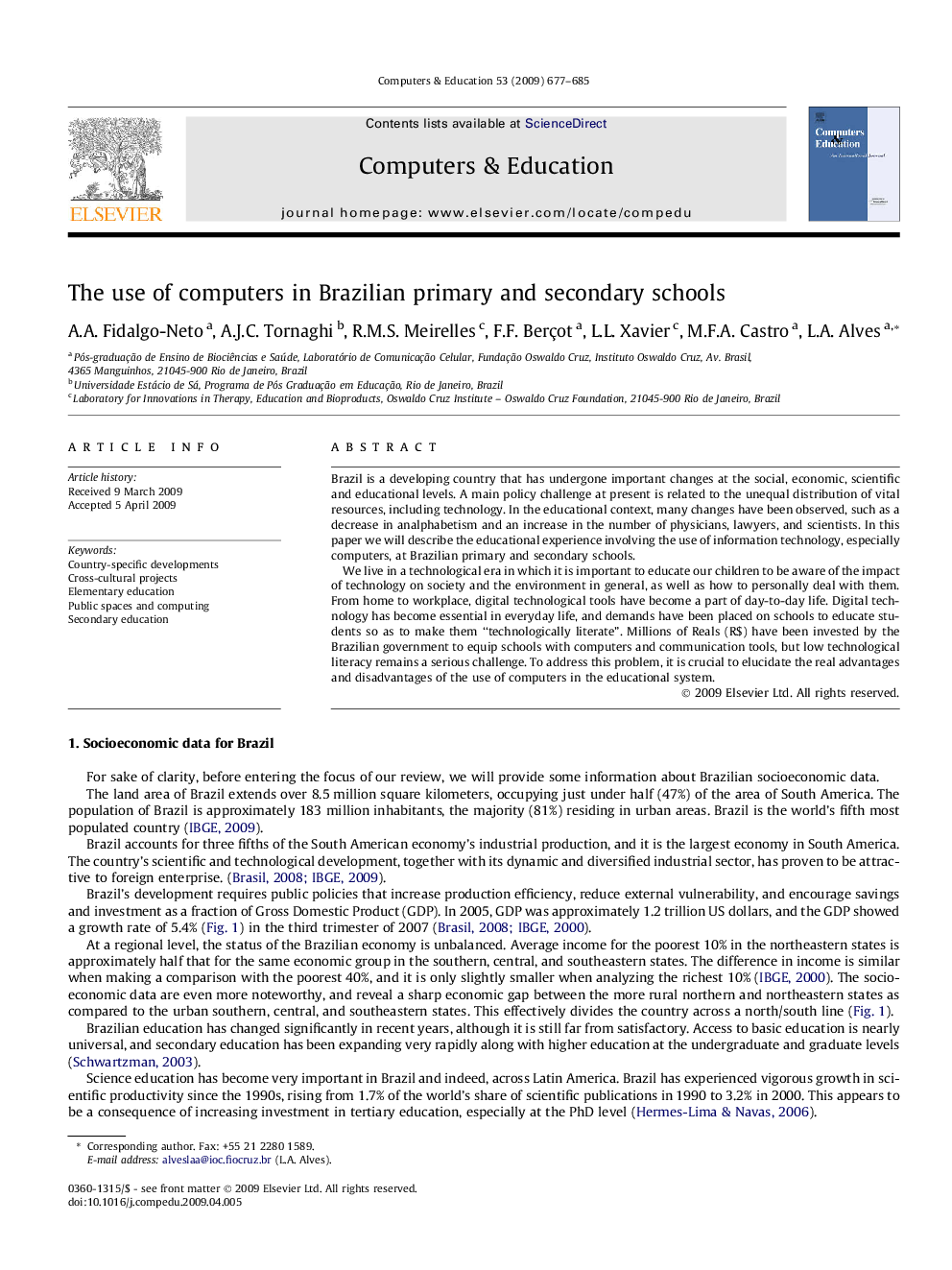| Article ID | Journal | Published Year | Pages | File Type |
|---|---|---|---|---|
| 349716 | Computers & Education | 2009 | 9 Pages |
Brazil is a developing country that has undergone important changes at the social, economic, scientific and educational levels. A main policy challenge at present is related to the unequal distribution of vital resources, including technology. In the educational context, many changes have been observed, such as a decrease in analphabetism and an increase in the number of physicians, lawyers, and scientists. In this paper we will describe the educational experience involving the use of information technology, especially computers, at Brazilian primary and secondary schools.We live in a technological era in which it is important to educate our children to be aware of the impact of technology on society and the environment in general, as well as how to personally deal with them. From home to workplace, digital technological tools have become a part of day-to-day life. Digital technology has become essential in everyday life, and demands have been placed on schools to educate students so as to make them “technologically literate”. Millions of Reals (R$) have been invested by the Brazilian government to equip schools with computers and communication tools, but low technological literacy remains a serious challenge. To address this problem, it is crucial to elucidate the real advantages and disadvantages of the use of computers in the educational system.
